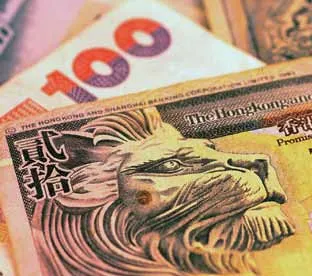
Less taxes for Hong Kong tax residents working in mainland China
In 2006, mainland China and Hong Kong concluded an Arrangement for the Avoidance of Double Taxation and the Prevention of Fiscal Evasion with respect to Taxes on Income, or the Arrangement.
The purpose of such Arrangement was to eliminate double taxation, and with regard to personal income, the Arrangement set forth the following principles:Under Article 14(1), salaries, wages and other similar remuneration derived by a resident of Hong Kong in respect of an employment shall be taxable only in Hong Kong unless the employment is exercised in mainland China. If employment is so exercised, such remuneration as is derived therefrom may be taxed in mainland China.
Notwithstanding the provisions of Article 14(1), under Article 14(2), Hong Kong tax residents, employed and paid by Hong Kong business entities, and spending at most 183 days per year in mainland China, can be exempted from tax in mainland China.
The persistence of double taxation and of a high level of taxes
However, despite the fact that such Arrangement is aimed at eliminating double taxation, many tax residents of Hong Kong continued to be subject to double taxation and to a high level of taxation in mainland China. The differing income sourcing rules applied by the tax authorities of Hong Kong (Inland Revenue Department or IRD) and of mainland China (State of Administration of Taxation or SAT), and the lack of cooperation and coordination between the IRD and the SAT did not help.
For instance, Hong Kong tax residents working and spending in mainland China more than 183 days within a Chinese fiscal year had to pay a high amount of taxes because the tax calculation method did not take into consideration the exact number of days spent in mainland China. Attention had then to be paid by workers and their employers to ensure, if possible, that the threshold of 183 days was not crossed to avoid being taxed heavily.
New regulation reducing the tax exposure of Hong Kong tax residents
Over the past two years the SAT and the IRD have raised the issue of double taxation in respect of cross border workers to try to solve it. After having taken into consideration the opinions expressed by businesses and the accounting sector, on 26 April 2012, the SAT issued a New Regulation, Circular 2012 No. 16, effective 1st June 2012.
The New Regulation introduces favorable calculation methods when determining the tax exposure of eligible Hong Kong tax residents.
Those eligible to apply for this favorable tax treatment includes Hong Kong tax residents employed either only in Hong Kong or both in Hong Kong and mainland China, and exercising their job duties in mainland China more than 183 days during a Chinese fiscal year.
The new calculation methods are favorable because they take into consideration the exact number of days during which the Hong Kong tax resident had a physical presence in mainland China, the date of arrival and the date of departure from mainland China being both counted as half a day.
Written by Eric Mayer, Managing Partner of TMA








![Cross Domain [Manu + SBR + ABF + ABR + FMCG + HBR + ]](https://cmg-qa.s3.ap-southeast-1.amazonaws.com/s3fs-public/styles/exclusive_featured_article/public/2025-01/earth-3537401_1920_4.jpg.webp?itok=WaRpTJwE)









 Advertise
Advertise


